![What Does It Mean Going Through Customs? [English]](/_next/image?url=https%3A%2F%2Fcdn.sanity.io%2Fimages%2F147z5m2d%2Fproduction%2F71f31c69718bba81e8598a7d754d2bdaf247d4cd-2240x1260.png&w=3840&q=75)

What Does It Mean Going Through Customs? [English]
The moment your aircraft touches down in a foreign country, you enter a critical phase of international travel that can determine whether your journey continues smoothly or encounters significant delays. Going through customs represents far more than a bureaucratic checkpoint—it serves as a nation's primary defense mechanism against illegal imports, security threats, and economic violations. Understanding customs procedures has become increasingly vital as global travel rebounds to pre-pandemic levels. The World Trade Organization reports that international trade volumes have grown by 12% annually since 2023, directly correlating with stricter enforcement protocols at border crossings. This reality makes customs literacy not just helpful, but essential for modern travelers.
![What Does URL Stand For [English]](/_next/image?url=https%3A%2F%2Fcdn.sanity.io%2Fimages%2F147z5m2d%2Fproduction%2F5acd6ed6535c842ad8db9a791edea07f4bd9e487-2240x1260.png&w=3840&q=75)

What Does URL Stand For [English]
URL stands for Uniform Resource Locator, though the term carries more weight than its simple definition suggests. Understanding what URL means reveals the foundational architecture that enables every web interaction you perform daily. The acronym represents a systematic approach to addressing digital resources across networks. Tim Berners-Lee, the inventor of the World Wide Web, originally preferred "Universal Resource Locator", emphasizing the global scope of web addressing. The shift to "Uniform" reflects standardization—a critical factor that prevents the chaos of incompatible addressing systems. This matters now because URLs determine accessibility, security, and findability of digital content. Every click, search, and share depends on URL architecture functioning correctly. As digital interactions intensify, understanding URL mechanics becomes essential for anyone creating, managing, or optimizing web presence.
![WWW Acronym: What Does WWW Stand For? [English]](/_next/image?url=https%3A%2F%2Fcdn.sanity.io%2Fimages%2F147z5m2d%2Fproduction%2F96d666459ea9fcbd31cda2eb780a5477e8319481-2240x1260.png&w=3840&q=75)

WWW Acronym: What Does WWW Stand For? [English]
The acronym WWW stands for World Wide Web - three simple words that revolutionized human communication and information access. Behind this ubiquitous prefix lies a technological foundation that transformed scattered computer networks into the interconnected digital ecosystem we navigate daily. Understanding WWW requires examining both its literal meaning and revolutionary impact. When Tim Berners-Lee conceived this system in 1989, he chose terminology that reflected his vision: a worldwide network of interconnected documents accessible through web-like links. The acronym captures this essence perfectly - World (global scope), Wide (comprehensive reach), and Web (interconnected structure).


8 Amazing Online Spanish Classes for Kids That Will Delight
The cognitive advantages of bilingualism are no longer theoretical. Neuroscience research demonstrates that bilingual children show enhanced executive function, improved problem-solving abilities, and greater cognitive flexibility compared to monolingual peers. Spanish, as the world's second-most spoken language with over 500 million speakers globally, represents an strategic educational investment for parents seeking to maximize their children's future opportunities. Mexico's GDP is projected to surpass that of several European economies by 2050, according to PwC economic forecasts. This economic trajectory, combined with the growing Hispanic population in the United States—expected to reach 111 million by 2060—creates compelling reasons for early Spanish acquisition. Children who master Spanish before age 12 demonstrate near-native pronunciation and grammatical intuition that becomes increasingly difficult to achieve in adulthood. The challenge lies not in recognizing Spanish's value, but in identifying effective learning platforms that maintain engagement while delivering measurable progress. After analyzing curriculum structures, instructor qualifications, pricing models, and student outcomes across dozens of platforms, seven online Spanish programs demonstrate superior results for different learning profiles and family needs.


National Employee Appreciation Day Ideas That Drive Results
Employee retention has reached crisis levels across industries. The Bureau of Labor Statistics reports that 4.2 million Americans quit their jobs in October 2024 alone—a staggering figure that represents more than just statistics. Each departure costs companies between 50% to 200% of an employee's annual salary in replacement costs, according to the Center for American Progress. The solution isn't complex compensation packages or elaborate benefits structures. Research consistently demonstrates that employees leave managers, not companies, and the primary driver behind voluntary turnover is a fundamental human need: feeling valued and appreciated for their contributions. National Employee Appreciation Day presents a strategic opportunity to address this challenge, but only when approached with intentionality and genuine commitment to recognition culture. This isn't about superficial gestures or one-day celebrations—it's about leveraging a designated moment to reinforce ongoing appreciation practices that measurably impact retention, productivity, and organizational culture.
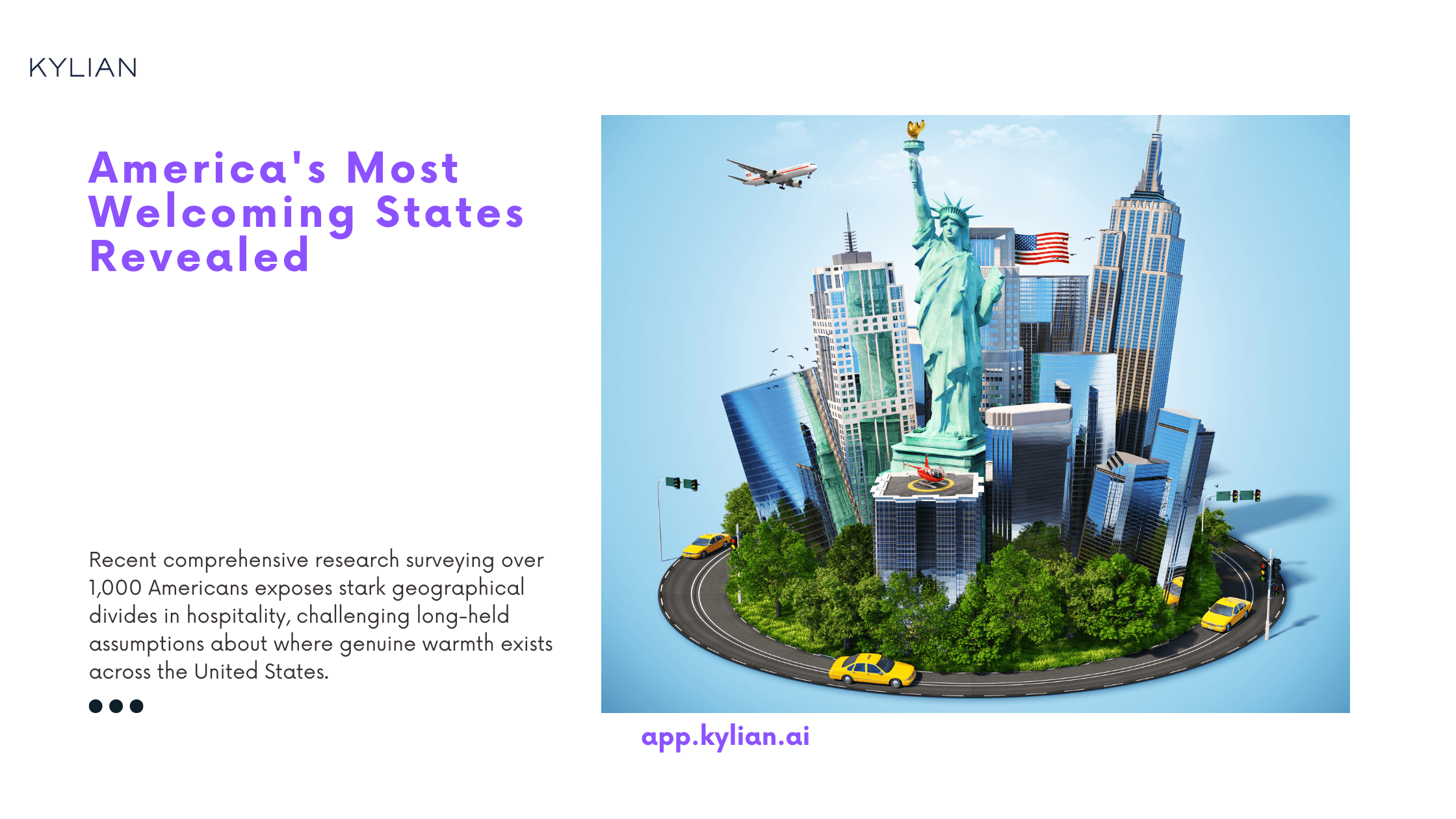

America's Most Welcoming States Revealed
The way Americans greet strangers reveals fundamental truths about regional character and cultural identity. Recent comprehensive research surveying over 1,000 Americans exposes stark geographical divides in hospitality, challenging long-held assumptions about where genuine warmth exists across the United States. Understanding these regional greeting patterns matters now more than ever. As remote work reshapes migration patterns and Americans increasingly relocate across state lines, knowing which communities will genuinely welcome newcomers becomes critical intelligence for major life decisions. The data reveals that traditional stereotypes about Southern hospitality and Northeastern coldness require significant revision. Vermont, Maine, and Hawaii emerge as America's most welcoming states, while Missouri, Massachusetts, and Illinois rank among the least hospitable territories.
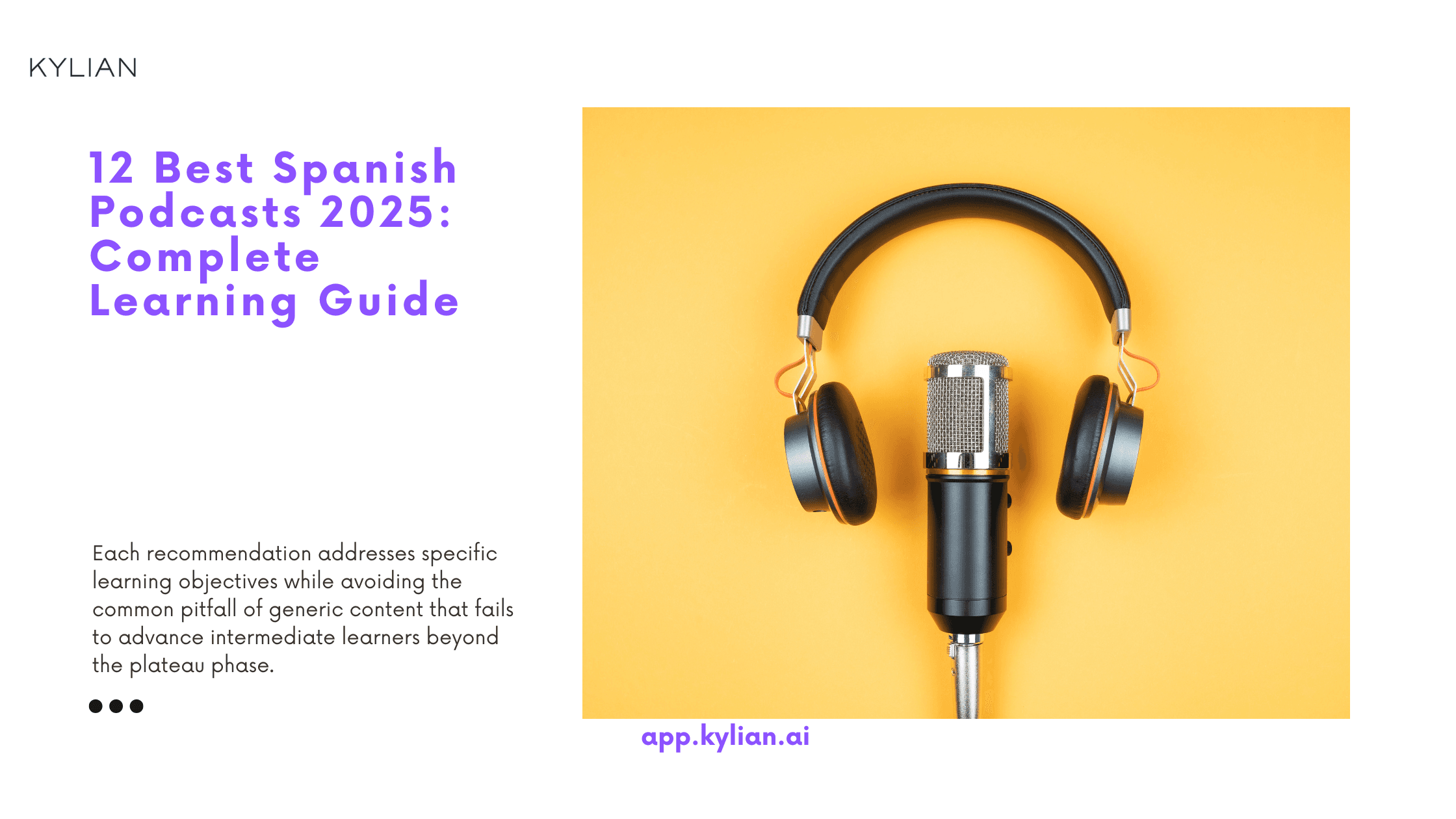

12 Best Spanish Podcasts 2025: Complete Learning Guide
Language acquisition through audio immersion has become the cornerstone of modern polyglot methodology. The human brain processes spoken language at 125-150 words per minute, making podcasts an optimal medium for developing natural listening comprehension and pronunciation patterns. Spanish, spoken by 500 million people globally, presents unique dialectical challenges that require strategic audio exposure. The effectiveness of podcast-based learning stems from neuroplasticity research showing that consistent audio input creates new neural pathways in the language processing centers of the brain. This biological reality transforms podcast listening from passive entertainment into active cognitive restructuring. Yet not all Spanish podcasts deliver equal learning outcomes. The quality of content curation, pedagogical structure, and authentic speech patterns determines whether your investment in listening hours translates into measurable fluency gains. This analysis examines twelve Spanish learning podcasts based on three critical metrics: pedagogical effectiveness, authentic language usage, and scalability across proficiency levels. Each recommendation addresses specific learning objectives while avoiding the common pitfall of generic content that fails to advance intermediate learners beyond the plateau phase.
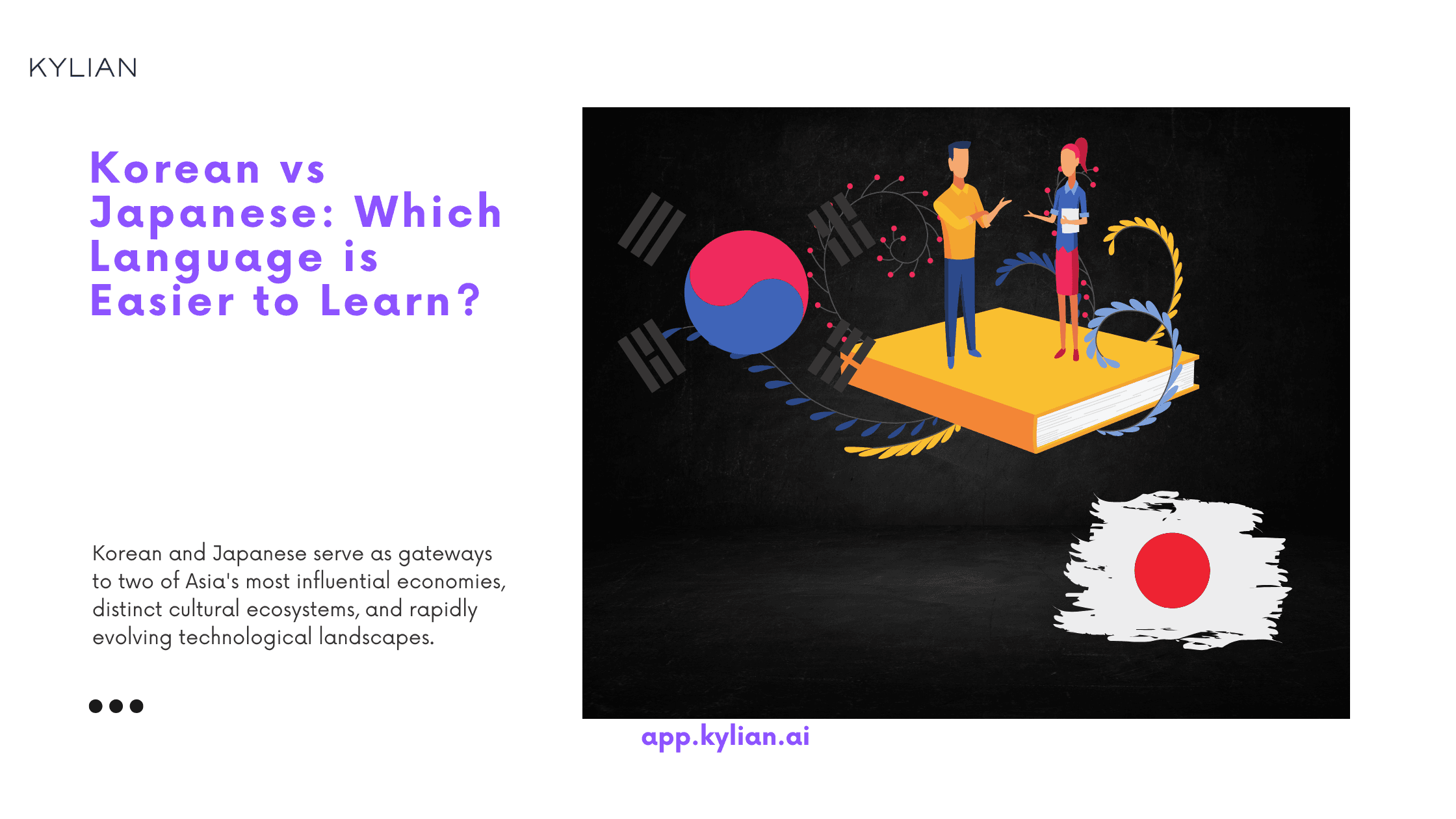

Korean vs Japanese: Which Language is Easier to Learn?
The choice between Korean and Japanese represents more than a simple language preference—it's a strategic decision that impacts your learning trajectory, career opportunities, and cultural engagement for years to come. This comparison cuts through the surface-level advice to examine the structural, cognitive, and practical factors that determine which language aligns with your capabilities and objectives. Both languages occupy the same difficulty tier according to the U.S. Foreign Service Institute, requiring approximately 2,200 classroom hours to reach proficiency. This classification places them among the most challenging languages for English speakers, alongside Arabic and Mandarin Chinese. The question isn't whether these languages are difficult—they are. The question is which difficulty curves match your learning profile and long-term goals. The strategic importance of this decision extends beyond personal enrichment. Korean and Japanese serve as gateways to two of Asia's most influential economies, distinct cultural ecosystems, and rapidly evolving technological landscapes. The language you choose determines which professional networks, entertainment industries, and innovation hubs become accessible to you.


8 Weather Idioms in English You Must Know
Language learners often struggle with the gap between textbook English and authentic conversation. While grammar rules and vocabulary lists provide structure, idioms bridge this divide by offering cultural insight wrapped in memorable phrases. Weather idioms represent one of the most accessible entry points into natural English expression, not because weather is universally discussed, but because these expressions have evolved beyond their literal meanings to capture complex human experiences. The strategic value of mastering weather idioms extends beyond casual conversation. These expressions appear frequently in business communications, literature, and media because they convey nuanced emotions and situations that direct language cannot capture efficiently. When someone says a decision came "like a bolt from the blue," they communicate surprise, timing, and impact in four words that would otherwise require lengthy explanation.


Mastering Italian Pronouns: Complete Guide
Learning Italian pronouns represents one of the most significant leaps toward authentic communication in the language. While many learners focus on vocabulary acquisition and verb conjugations, pronouns function as the invisible architecture that transforms disconnected words into fluid, natural discourse. The strategic mastery of Italian pronouns matters now more than ever because modern communication demands precision and nuance. Whether you're conducting business in Milan, studying at an Italian university, or simply seeking deeper cultural connections, pronouns serve as the linguistic bridge between basic comprehension and sophisticated expression. Italian pronouns differ fundamentally from their English counterparts in both complexity and cultural significance. They encode social relationships, formality levels, and contextual nuances that can make or break professional and personal interactions. This guide dissects each pronoun category with precision, providing you with the systematic understanding necessary for genuine fluency.


Could Of vs Could Have: Why This Mistake Matters
The phrase "could of" appears in professional emails, academic papers, and casual conversations daily. Yet this construction represents one of English grammar's most persistent errors—one that undermines credibility and creates confusion in communication. This mistake stems from a fundamental misunderstanding of English modal verbs and contractions. When speakers hear "could've," they process the sound as "could of" rather than recognizing it as the contraction of "could have." The consequences extend beyond simple grammatical incorrectness: using "could of" signals imprecise thinking and can damage professional relationships. Why does this matter now? In an era where written communication dominates professional interactions, grammatical precision directly impacts career advancement and business success. Research indicates that hiring managers spend less than six seconds reviewing resumes—grammatical errors eliminate candidates immediately.


The Ultimate Dos and Don'ts Guide to Teaching Kids Online
Online education has fundamentally shifted how we approach child learning, yet most educators enter this space unprepared for its unique challenges. The difference between managing a physical classroom and engaging young minds through a screen requires strategic adaptation—not just digital tools slapped onto traditional methods. Teaching kids online demands precision in approach because attention spans compress, distractions multiply, and the margin for error shrinks dramatically. Every decision you make—from lesson structure to parent communication—either builds toward educational success or contributes to digital chaos. This guide examines what separates effective online educators from those who struggle, focusing on evidence-based strategies that address the core challenges of virtual learning environments for young students.


German Sentence Structure: Build Like a Pro
German sentence construction follows patterns that initially appear chaotic to English speakers, yet these patterns contain precise logic that, once understood, unlock fluent expression. The perception that German word order resembles Yoda's speech patterns stems from fundamental differences in how Germanic languages organize information compared to English. This systematic approach to German syntax matters because incorrect word order doesn't just sound awkward—it creates ambiguity about who performs actions and who receives them. Understanding these patterns enables learners to express complex ideas with the precision that German demands.


Learn Ukrainian Through Cinema: Best Movies 2025
Cinema serves as a powerful linguistic bridge, transforming passive vocabulary absorption into active cultural immersion. Ukrainian filmmaking has experienced unprecedented growth since 2014, with production increasing by 340% and international recognition reaching new heights following the 2024 Oscar win for "20 Days in Mariupol." This surge represents more than artistic achievement—it signals a cultural renaissance that language learners can leverage for accelerated acquisition. The neurological advantages of cinematic language learning are quantifiable. Research demonstrates that audiovisual input activates multiple brain regions simultaneously, improving retention rates by up to 65% compared to traditional textbook methods. Ukrainian cinema offers particular advantages: diverse dialectical exposure, contemporary slang integration, and historical context that textbooks cannot replicate. Modern Ukrainian films provide authentic linguistic landscapes unavailable through conventional learning materials. From Western Ukrainian dialects in rural dramas to contemporary Kyiv slang in urban comedies, cinema exposes learners to linguistic diversity that reflects Ukraine's complex cultural geography. This exposure proves critical for developing comprehensive language competency.
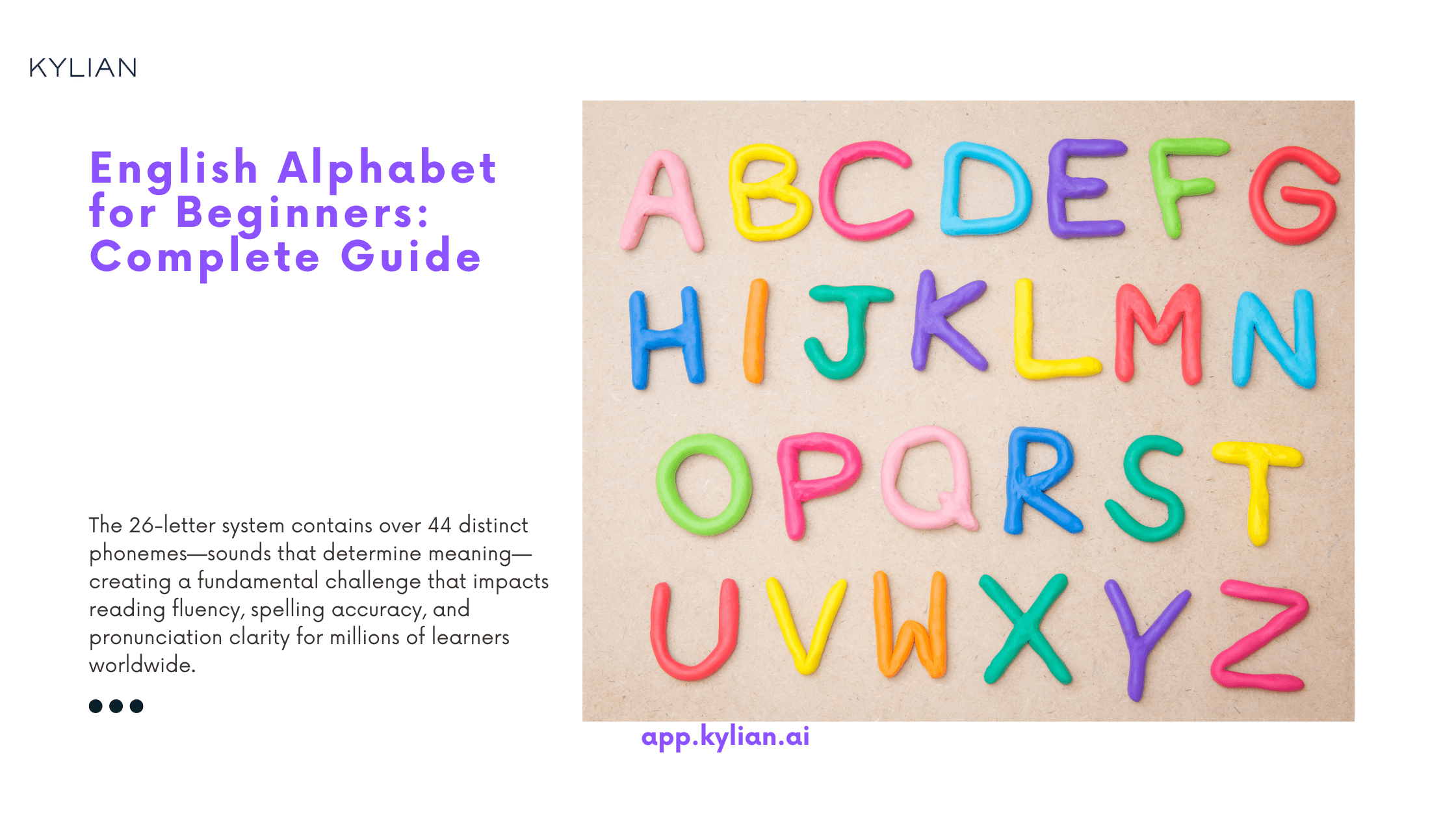

English Alphabet for Beginners: Complete Guide
Mastering the English alphabet represents the cornerstone of language acquisition, yet most beginners underestimate its complexity. The 26-letter system contains over 44 distinct phonemes—sounds that determine meaning—creating a fundamental challenge that impacts reading fluency, spelling accuracy, and pronunciation clarity for millions of learners worldwide. The disconnect between letter count and sound variety explains why English consistently ranks among the most challenging languages for non-native speakers. Understanding this complexity from the outset changes how you approach learning, transforming potential frustration into strategic advantage.


Why English Dominates: The Global Language of 2025
English has reached an unprecedented level of global influence, with over 2 billion speakers worldwide representing roughly 25% of the global population. This linguistic dominance isn't accidental—it reflects fundamental shifts in how our interconnected world operates, conducts business, and shares knowledge. The question isn't whether English matters, but rather why its importance continues to accelerate in 2025 and beyond. The answer lies in examining concrete data points that reveal English's role as the primary vehicle for international communication, technological advancement, and economic opportunity.


Cartoons for English Learning: Proven Methods That Work
Language acquisition through visual media represents one of the most underutilized yet effective learning methodologies available today. The global English-speaking population has reached 1.5 billion people, with a significant portion crediting non-traditional learning methods for their proficiency. Among these methods, animated content stands out as particularly effective due to its unique combination of visual context, repetitive language patterns, and cultural immersion. The question isn't whether cartoons can facilitate English learning—research consistently demonstrates they can. The critical question is how to leverage them strategically to maximize linguistic development while avoiding the passive consumption trap that renders most media consumption educationally worthless.


Mastering Superlative Adjectives: Complete English Guide
English learners often struggle with expressing extreme qualities effectively. While basic adjectives serve their purpose, superlative adjectives transform ordinary descriptions into precise, impactful statements that command attention and convey exact meaning. Consider the difference between saying "The coffee was good" versus "The coffee was the best I've tasted in years." The superlative form creates a hierarchy, establishes context, and delivers a memorable impression that resonates with your audience. This distinction matters because superlative adjectives represent one of the most frequently used grammatical structures in professional communication, academic writing, and everyday conversation. Mastering them elevates your English from functional to sophisticated, enabling you to articulate nuanced comparisons that native speakers use instinctively. The challenge lies not in understanding the concept, but in navigating the complex formation rules, avoiding common pitfalls, and applying superlatives appropriately across different contexts. This comprehensive analysis addresses these challenges systematically, providing the framework needed to use superlative adjectives with confidence and precision.


Must-Watch French TV Shows to Improve your French Skills
Language acquisition through entertainment represents one of the most effective pedagogical approaches available today. Unlike traditional classroom methods that isolate vocabulary from context, French television programming delivers authentic linguistic immersion while maintaining engagement through compelling narratives. The neuroscience behind this approach is straightforward: when the brain processes language within meaningful contexts—rather than through rote memorization—it creates stronger neural pathways. This contextual learning mirrors how children naturally acquire their first language, making it significantly more effective than conventional study methods. French television offers something particularly valuable that textbooks cannot: authentic contemporary usage. Regional accents, colloquialisms, cultural references, and natural speech patterns emerge organically through character interactions. This exposure becomes crucial for developing genuine fluency rather than academic proficiency. More importantly, this method addresses the motivation crisis that plagues traditional language learning. When learners associate French study with entertainment rather than obligation, retention rates increase dramatically. The anticipation of discovering plot developments naturally encourages consistent exposure—a key factor in language acquisition success.


How to Study for an English Exam: 12 Helpful Habits
English proficiency exams present a unique challenge: they evaluate multiple competencies simultaneously across listening, reading, writing, and speaking domains. Unlike subject-specific tests that focus on knowledge retention, these assessments measure your ability to process, comprehend, and communicate in real-time scenarios. The complexity stems from the interconnected nature of language skills. Research from Cambridge Assessment demonstrates that successful candidates don't just excel in isolated areas—they develop integrated competencies that transfer across all four skill domains. This integration requires strategic preparation that moves beyond traditional cramming methods. Most test-takers approach English exams with fragmented study methods, focusing on one skill at a time without understanding how these competencies reinforce each other. This approach explains why many candidates plateau despite intensive preparation. The solution lies in developing systematic habits that create synergistic improvements across all tested areas.


Ukrainian vs Russian: Beyond Surface Similarities
The persistent misconception that Ukrainian and Russian are essentially the same language reflects a profound misunderstanding of Eastern European linguistic history. When colleagues abroad discover your Ukrainian heritage, the predictable questions follow: "So you speak Russian?" followed by "But they're basically the same, right?" These assumptions reveal how successfully certain narratives have dominated international discourse about Slavic languages. The reality contradicts these oversimplified assumptions. Ukrainian and Russian represent distinct evolutionary paths within the Slavic language family, shaped by centuries of separate political, cultural, and geographic influences. Understanding these differences matters now more than ever, as linguistic identity becomes increasingly intertwined with cultural sovereignty and national self-determination.
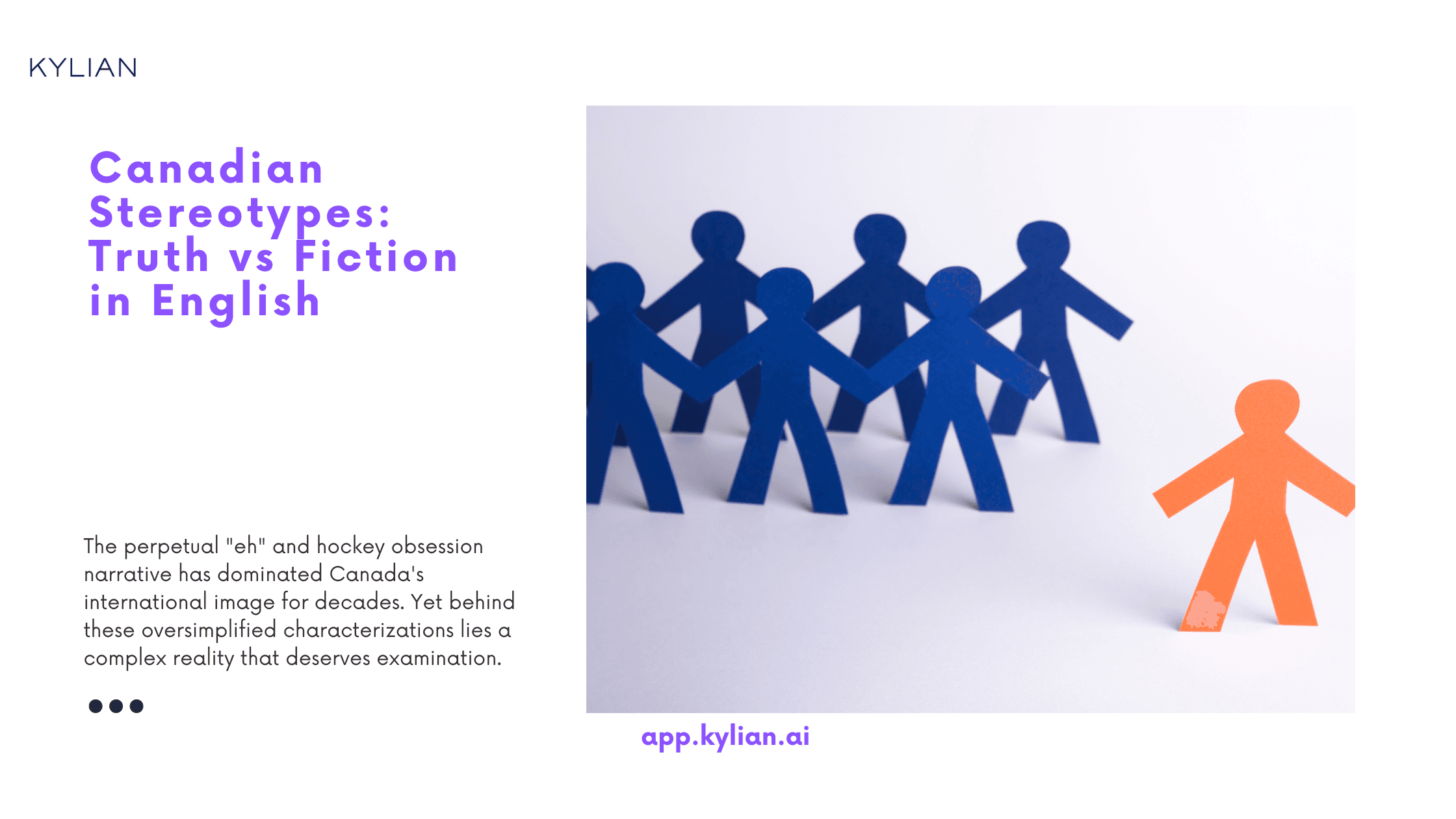

Canadian Stereotypes: Truth vs Fiction in English
The perpetual "eh" and hockey obsession narrative has dominated Canada's international image for decades. Yet behind these oversimplified characterizations lies a complex reality that deserves examination. Recent survey data reveals a striking disconnect between how Canadians perceive themselves and how the world perceives them—a gap that speaks to broader issues of cultural understanding in our globalized world. Why does this matter now? Because stereotypes aren't harmless cultural shorthand. They shape policy decisions, influence immigration patterns, and affect international business relationships. When 70% of Canadians view stereotypes as potential racism, we're looking at a phenomenon that transcends casual commentary and enters the realm of social justice. The data tells a story worth unpacking. When 42% of Canadians express frustration with the "eh" stereotype and 40% reject the hockey obsession narrative, we're witnessing a population ready to reclaim their narrative. This isn't about political correctness—it's about accuracy in how we understand our neighbors.


What Does "On the Grind" Mean in English?
The phrase "on the grind" represents more than casual workplace terminology—it encapsulates a fundamental mindset that distinguishes peak performers from average contributors across industries. This expression, deeply embedded in American vernacular, signals unwavering commitment to sustained effort, particularly when pursuing professional advancement or entrepreneurial ventures. Understanding "on the grind" matters because workplace dynamics have shifted dramatically. Remote work, gig economies, and entrepreneurial pursuits demand self-directed motivation that traditional employment structures once provided externally. The phrase captures this internal drive that modern professionals must cultivate to remain competitive.


10 Business English Topics That Accelerate Career Growth
Professional communication determines career trajectory more than technical expertise alone. While industry knowledge opens doors, the ability to articulate ideas, negotiate outcomes, and build strategic relationships through effective business English separates high performers from their peers. The data supports this reality. According to the National Association of Colleges and Employers, communication skills consistently rank as the most sought-after competency by employers, surpassing even technical abilities specific to roles. Yet most professionals receive minimal training in the conversation topics that matter most for advancement. This gap between communication importance and preparation creates both risk and opportunity. Those who master essential business English conversation topics position themselves for leadership roles, international assignments, and accelerated career progression. Those who don't face communication barriers that limit their professional potential regardless of their technical competence.